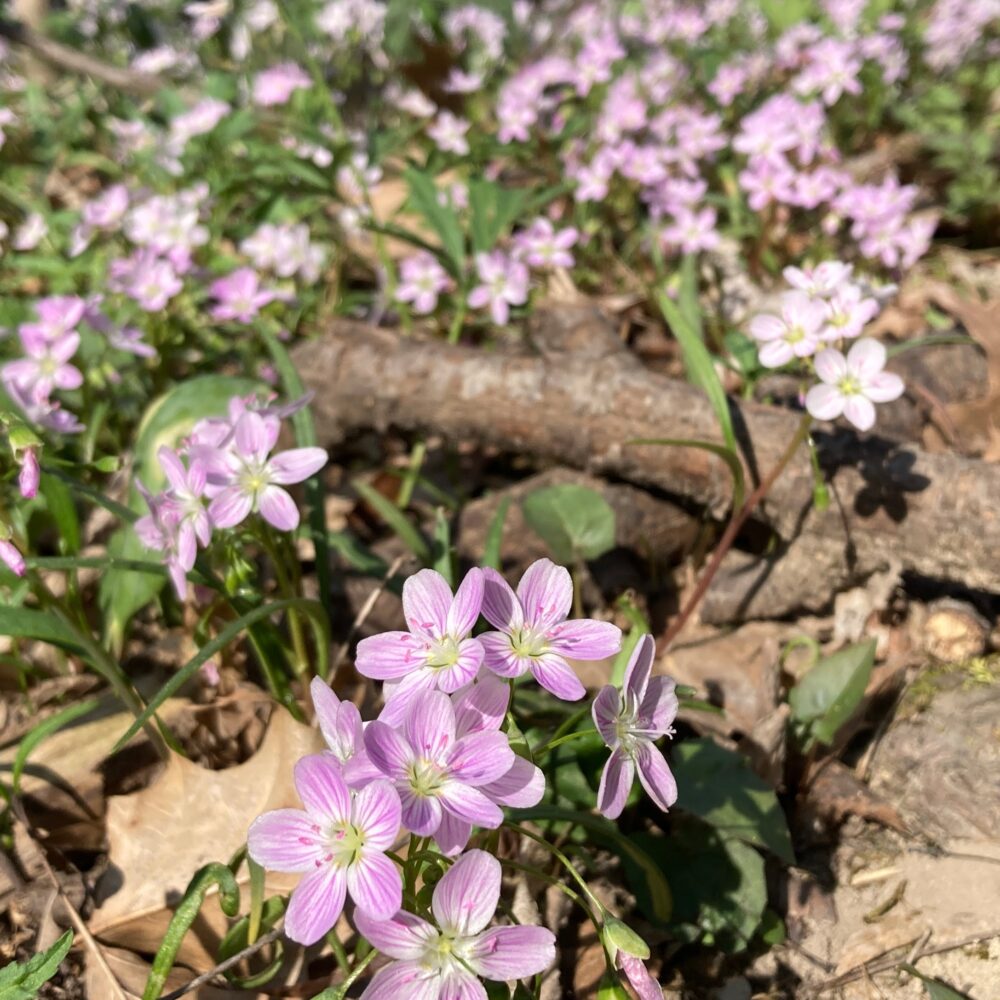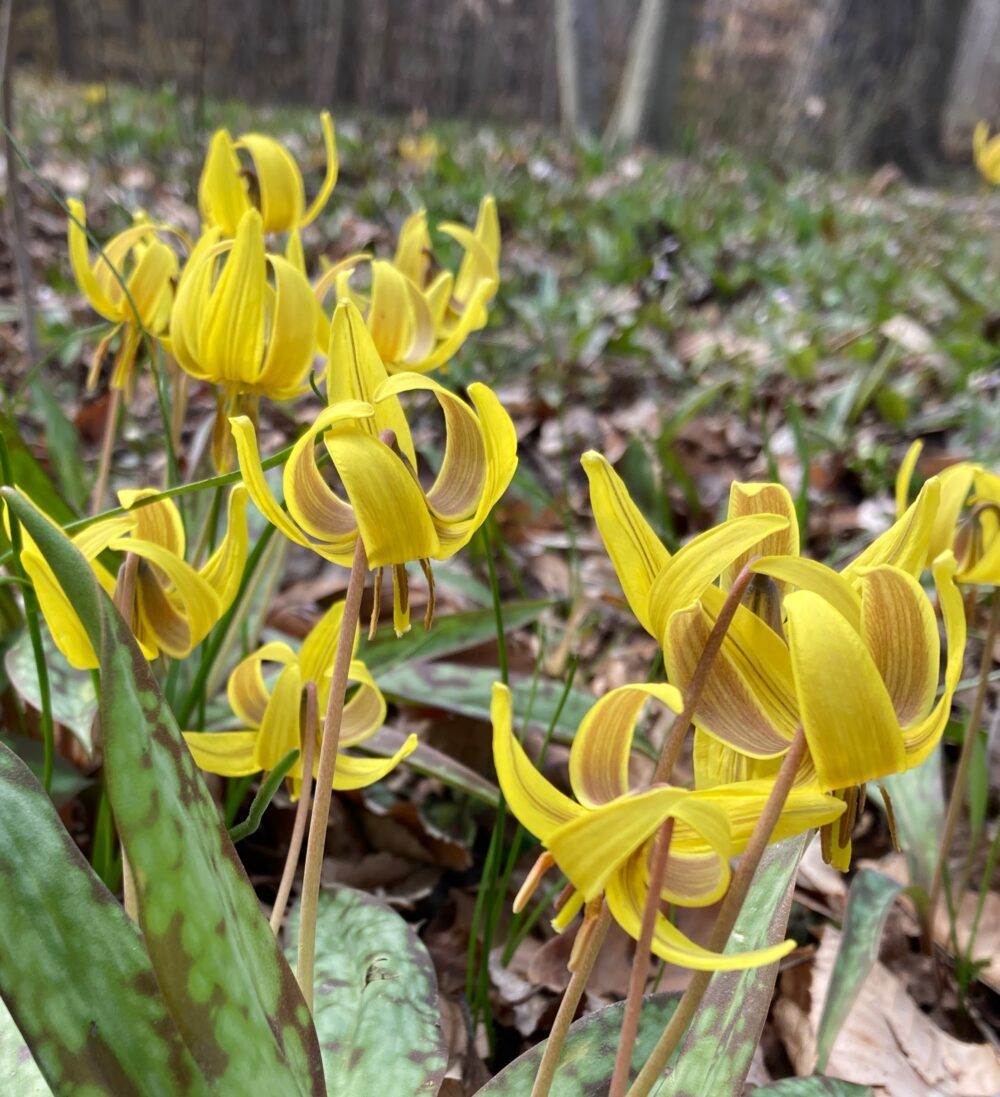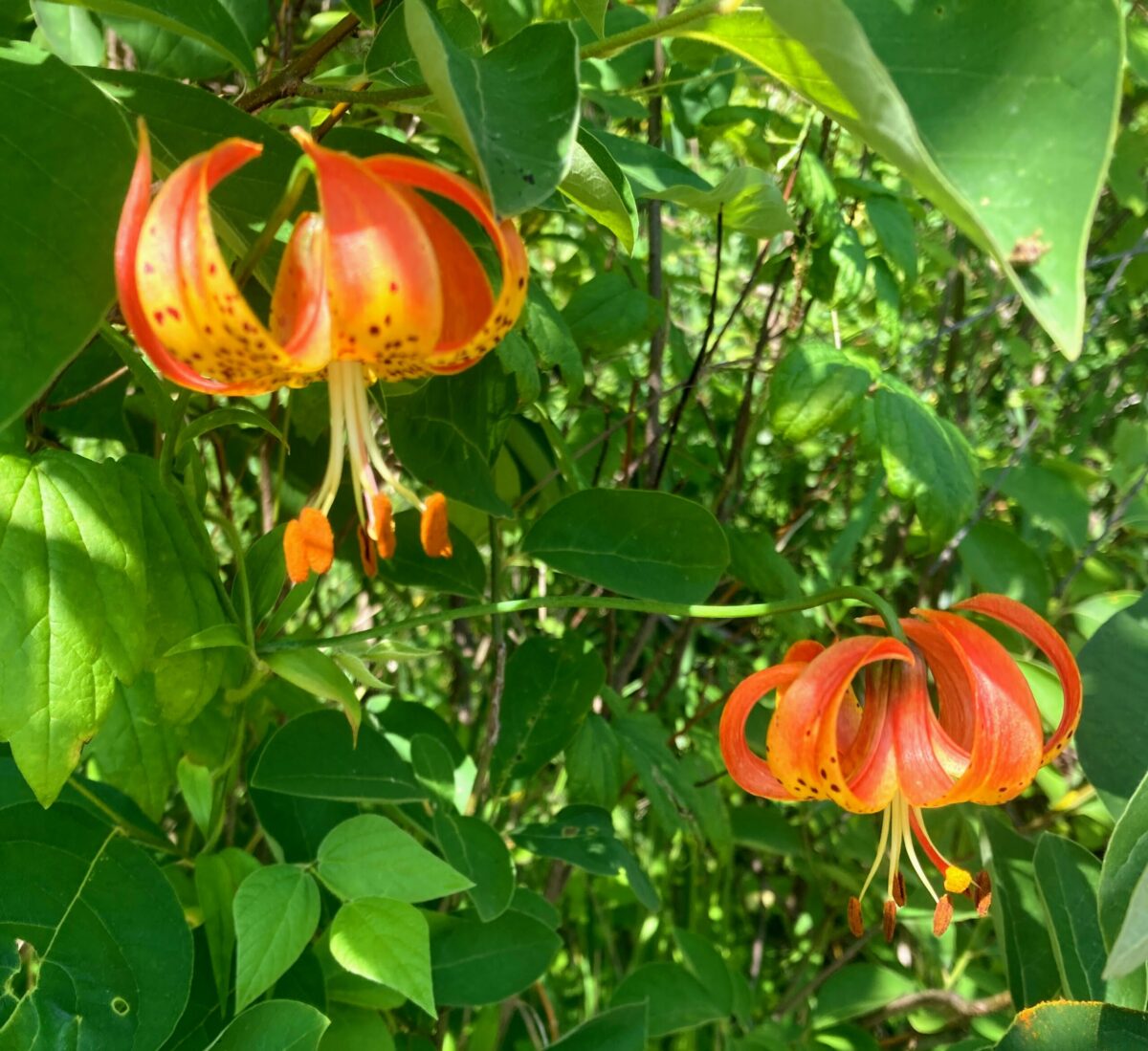Today’s photos are from Joseph in Indiana.
As we get into fall, I find myself always looking back on the plants I’ve seen that I’d like to add to my garden in the future. It is a lot of fun, and I thought I’d share some of my favorite plants of the year, specifically NATIVE plants. I garden in northern Indiana, so I mean native broadly to this part of North America.
 In the spring, I see spring beauty (Claytonia virginiana, Zones 4–9) all over any wooded area, but I almost never see it in gardens. The individual flowers are small but are often produced in huge numbers, making a carpet of pink under the trees. I think a bunch of them under the big maple in my front yard would be perfect.
In the spring, I see spring beauty (Claytonia virginiana, Zones 4–9) all over any wooded area, but I almost never see it in gardens. The individual flowers are small but are often produced in huge numbers, making a carpet of pink under the trees. I think a bunch of them under the big maple in my front yard would be perfect.
 Another native woodland wildflower I rarely see in gardens is hepatica (Hepatica americana, Zones 3–9). It has beautiful flowers, and even better, unlike on most native spring bloomers the foliage stays up all summer so they don’t leave a blank spot in the garden. I finally planted a few of these at home, so I’m looking forward to seeing them bloom there.
Another native woodland wildflower I rarely see in gardens is hepatica (Hepatica americana, Zones 3–9). It has beautiful flowers, and even better, unlike on most native spring bloomers the foliage stays up all summer so they don’t leave a blank spot in the garden. I finally planted a few of these at home, so I’m looking forward to seeing them bloom there.
 Trout lily (Erythronium americanum, Zones 3–8) is another wonderful little woodland ephemeral, with pretty speckled foliage and cheery yellow lilylike flowers.
Trout lily (Erythronium americanum, Zones 3–8) is another wonderful little woodland ephemeral, with pretty speckled foliage and cheery yellow lilylike flowers.
 A final woodland spring ephemeral is bloodroot (Sanguinaria canadensis, Zones 3–8). The flowers don’t last long, but they sure are beautiful while they flower!
A final woodland spring ephemeral is bloodroot (Sanguinaria canadensis, Zones 3–8). The flowers don’t last long, but they sure are beautiful while they flower!
 This is a very special wildflower that I’ll probably never be able to grow at home but would love to find a spot for: hairy puccoon (Lithospermum caroliniense, Zones 3–7). It grows only in very dry, sandy soil, such as on the dunes next to Lake Michigan. I love seeing it flowering in the wild each spring.
This is a very special wildflower that I’ll probably never be able to grow at home but would love to find a spot for: hairy puccoon (Lithospermum caroliniense, Zones 3–7). It grows only in very dry, sandy soil, such as on the dunes next to Lake Michigan. I love seeing it flowering in the wild each spring.
 Lilies are a great part of any garden—so why not a native one? This is Lilium michiganense (Zones 3–8) with over-the-top brilliant red-and-orange flowers.
Lilies are a great part of any garden—so why not a native one? This is Lilium michiganense (Zones 3–8) with over-the-top brilliant red-and-orange flowers.
 Scarlet bee balm (Monarda didyma, Zones 4–9) is very common in gardens, and for good reason—what a color! And why aren’t I growing it yet? I’m adding it to the list for next year, for sure.
Scarlet bee balm (Monarda didyma, Zones 4–9) is very common in gardens, and for good reason—what a color! And why aren’t I growing it yet? I’m adding it to the list for next year, for sure.
 Spotted bee balm (Monarda punctata, Zones 3–8) looks pretty different from the scarlet bee balm, but it is such a beautiful plant. While scarlet bee balm prefers wet soil, spotted bee balm thrives in dry spots. I think I have places for both of them!
Spotted bee balm (Monarda punctata, Zones 3–8) looks pretty different from the scarlet bee balm, but it is such a beautiful plant. While scarlet bee balm prefers wet soil, spotted bee balm thrives in dry spots. I think I have places for both of them!
 Goldenrods are underappreciated natives, and this is my favorite species, showy goldenrod (Solidago speciosa, Zones 3–8). I love it because it is, as the name suggests, very showy. It also isn’t, in my experience, an aggressive spreader, so it fits better in a small garden. And finally, monarch butterflies just love it! I finally planted some at home this year, but this photo is from a wild population near Lake Michigan.
Goldenrods are underappreciated natives, and this is my favorite species, showy goldenrod (Solidago speciosa, Zones 3–8). I love it because it is, as the name suggests, very showy. It also isn’t, in my experience, an aggressive spreader, so it fits better in a small garden. And finally, monarch butterflies just love it! I finally planted some at home this year, but this photo is from a wild population near Lake Michigan.
What natives looked good in your garden—or in the wild—this year? Send them into the GPOD. We’d love to see them!
Have a garden you’d like to share?
Have photos to share? We’d love to see your garden, a particular collection of plants you love, or a wonderful garden you had the chance to visit!
To submit, send 5-10 photos to [email protected] along with some information about the plants in the pictures and where you took the photos. We’d love to hear where you are located, how long you’ve been gardening, successes you are proud of, failures you learned from, hopes for the future, favorite plants, or funny stories from your garden.
Have a mobile phone? Tag your photos on Facebook, Instagram or Twitter with #FineGardening!
Do you receive the GPOD by email yet? Sign up here.




